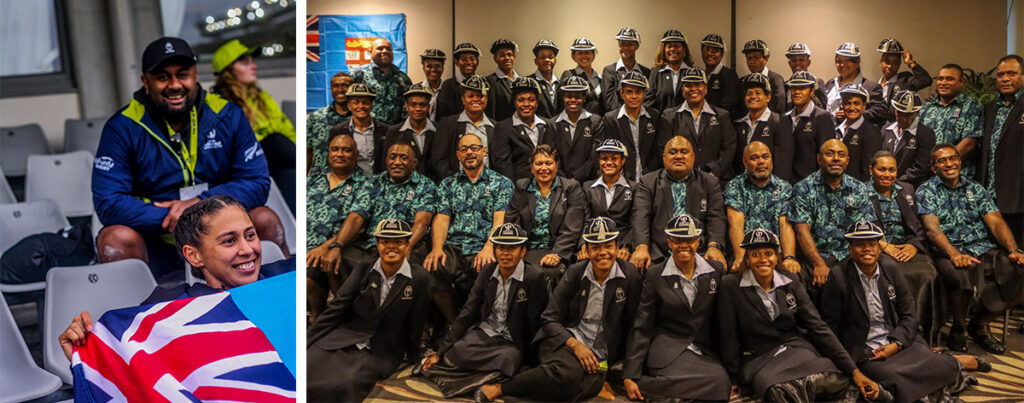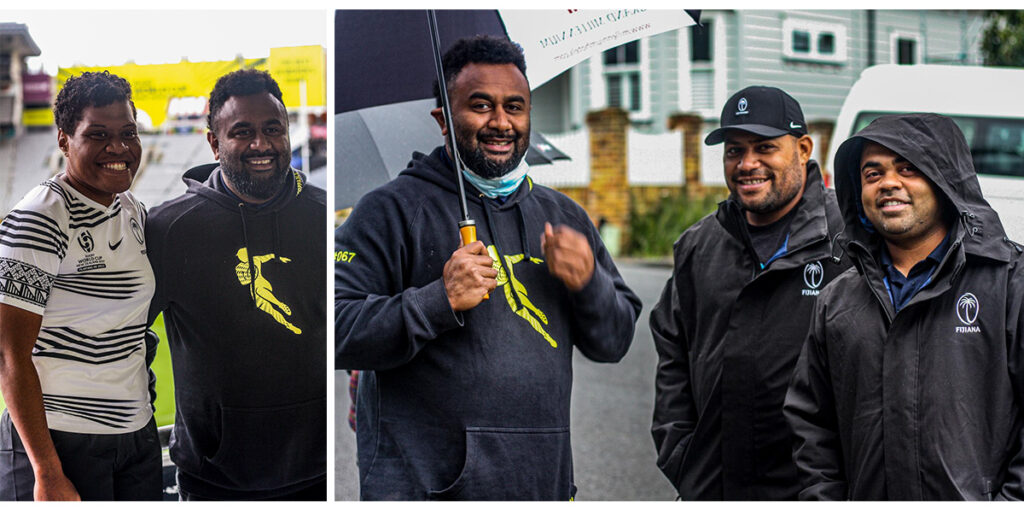We are recognised as authorities in our specialised fields. We publish newsletters with informed opinions that are free for you to subscribe to.
Go the Fijianas!

I had a once-in-a-lifetime opportunity to be involved with the Women’s Rugby World Cup as a TLO (Team Liaison Officer) for the Fiji Women’s Rugby Team (the Fijianas). Having missed out on previous tournaments, it was the Fijianas first-ever World Cup tournament. For an event that is held every four years, being there was everything for these women. Playing a game based on high tempo, flair, and physicality; the women brought many cheering fans to their feet during the tournament.

My role as a TLO was a full immersion into the team environment for the duration of the tournament across both venues, Auckland and Whangarei. Eating, living, and breathing rugby in the high-performance atmosphere over five weeks was a definite change from my usual 9 -5 sitting in front of the computer.

My job varied from day to day, from assisting the team in training setups, and managing day-to-day activities, driving the team van, organising logistics, transport, and support with tournament organisers, to overseeing team laundry, testing timeliness, organisational awareness, and communication. At times the days felt long, however, the excitement of being involved in an event of this magnitude and being able to serve my fellow Fijians made this an enjoyable experience. The feeling of living and breathing in my culture for an extended period was priceless. The simple “Yadra” every morning, smiling faces, sharing food and afternoon devotions, and speaking in my native language all day, every day, was irreplaceable. Something that I had missed, especially being away from Fiji for the past 18 years.
The Fijiana team is made up of local workers, mums, teachers, and Olympians, with a handful of semi-professional players who played in various women’s rugby leagues in Australia and Japan. In the mix, were also a few pioneers of the team – women who started the women’s rugby program in Fiji and broke the stigma of playing rugby in our still relatively traditional and patriarchal society.
These women fundraised to pay for transport and uniforms and organised themselves to meet up for games. It was about balancing family life and meeting the demands of a professional athlete on an amateur’s budget. To stand on the world stage is incredibly rewarding for the sacrifice and hardship these women faced – nothing has been handed to these women on a platter. They were up against a combination of fully and partially professional teams with far greater funding and opportunities to focus on their game. The skills and commitment to the game across the teams, including Fijiana, were truly something special.

Going into the Tournament, Fiji was ranked last among all the 12 teams that had qualified, with a world ranking of 21st. As such, it was placed in the “Pool of Death” which had England (ranked 1) France (ranked 3), and South Africa (13). These teams had experience, big Union budgets, and fully professional women players who were paid to live their dream as a full-time job.
The women displayed courage against the top-ranked England and France, often keeping up with teams for the first half before eventually losing both games. Still, they smiled and took the experience within their stride. Our team highlight was an “underdog” win over South Africa in the last seconds of the game. The joy on the faces of the team and management said it all.
New Zealand ultimately took out the Cup in a sold-out Eden Park against England (women’s rugby had never sold out a stadium before) – after a series of tightly matched games to get there. In our house, this left one parent celebrating and both kids happy, with all the noise and excitement!
Overall, this was an incredibly personal experience and an amazing period of growth for women’s rugby.
If you don’t know where to begin, want to talk through something, or have a specific question but are not sure who to address it to, fill in the form, and we’ll get back to you within two working days.
Find out about our team
Look through our articles
Read more about our history
Business Advisory Services
Tax Specialist Services
Value Added Services
Get in touch with our team
Want to ask a question?
What are your opening hours?
AML & CFT Act in New Zealand
Events with Gilligan Sheppard
Accounting software options
Where are you located?
Events

